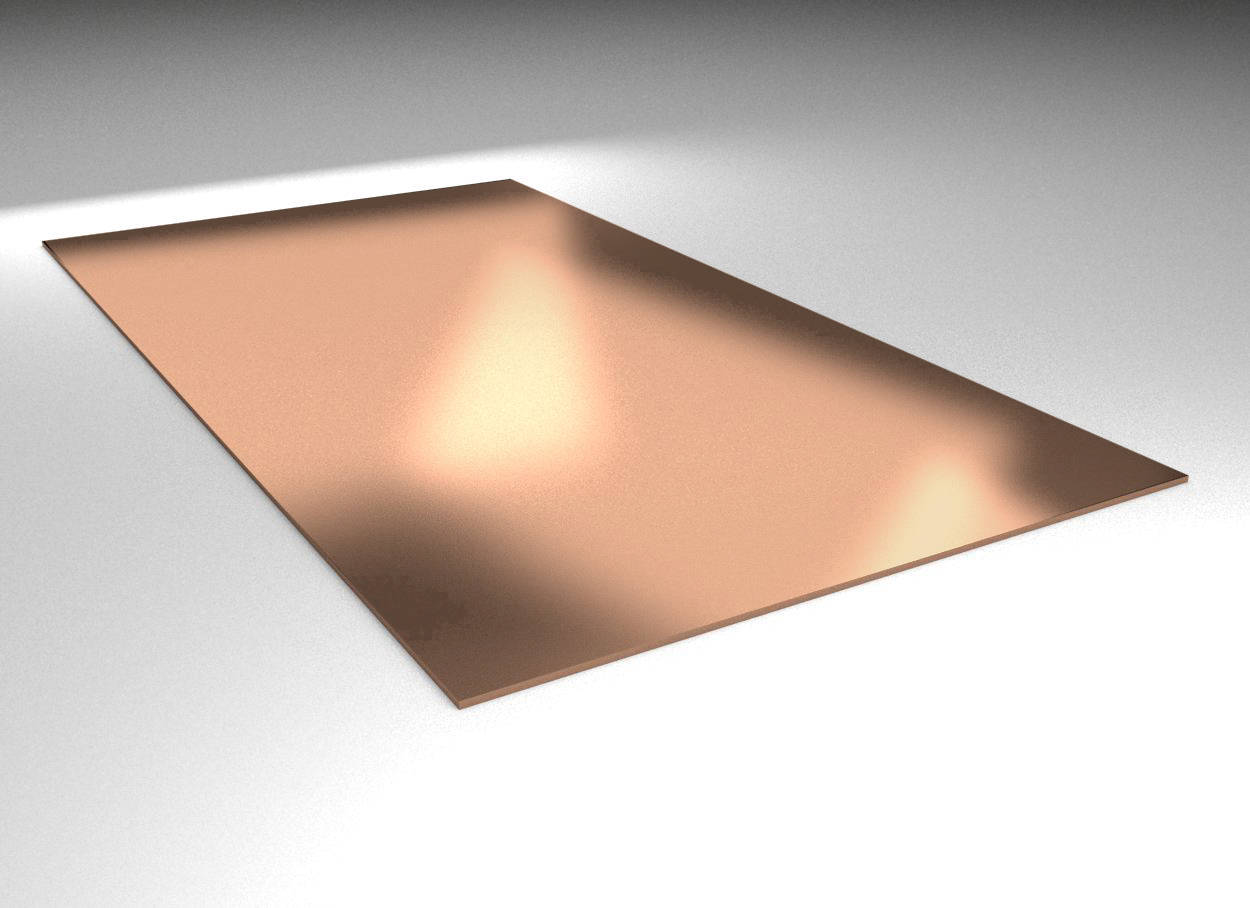Copper - Plate: Cu-ETP

Copper - Plate: Cu-ETP
Other grades for ISO Cu-ETP
Chemical composition
| Cu | Bi | O | Pb | other |
| rest | ≤0.0005 | ≤0.04 | ≤0.005 | ≤0.03 |
Product Information
CW004A, also known as Cu-ETP (Electrolytic Tough Pitch Copper) or C11000, is the most widely used oxygen-containing copper grade due to its exceptional electrical and thermal conductivity, high purity, and excellent formability. With a copper content of at least 99.90%, this alloy is the standard material for electrical and electronic applications, as well as for components in contact with drinking water under EU regulations. However, higher quality copper (oxygen-free) is more suitable when high strength is required (especially at high temperatures).
Key Characteristics
- Outstanding Electrical and Thermal Conductivity: Ideal for high-performance electrical systems.
- Excellent Formability: Suitable for both hot and cold forming.
- Good Corrosion Resistance: Forms a protective oxide layer; suitable for indoor and outdoor use.
- Joining: Excellent soldering, good brazing, fair gas-shielded arc welding, less suitable oxy-acetylene welding.
- Limitations: Not recommended for reducing atmospheres above 300 °C due to risk of hydrogen embrittlement.
Applications
- Electrical Industry: Busbars, motor and transformer windings, connectors, terminals, and switchgear.
- Electronics: Stamped parts, relay components, and precision connectors.
- Construction: Roofing, flashing, gutters, and architectural elements.
- Industrial Equipment: Chemical process vessels, vats, and heat exchangers.
- Special Uses: Coaxial cables, underwater fiber optic cables, and superconducting components.
Cu-ETP (CW004A) is listed in the European Positive List under Commission Implementing Decision (EU) 2024/367, ensuring compliance with Directive (EU) 2020/2184 for materials in contact with drinking water. This guarantees its suitability for hygienic and safe use in potable water systems.